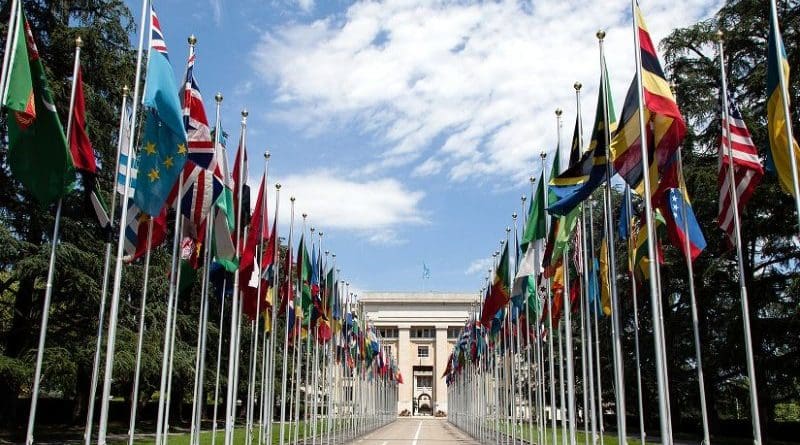Are Sanctions The Answer? Questioning The West’s Dependence On Punitive Measures In Global Politics – OpEd
Sanctions have become a favored tool in the arsenal of Western powers when it comes to exerting pressure on states that violate international norms or engage in destabilizing behavior. However, the growing reliance on sanctions raises the question of whether the West has developed an addiction to this approach. This opinion piece will explore the implications of the West’s addiction to sanctions, analyze its effectiveness, and suggest alternative strategies that can lead to more constructive international relations.
Over the past few decades, the West, particularly the United States and its European allies, has increasingly resorted to economic sanctions as a means of coercion and punishment. Sanctions are perceived as a non-violent tool to express disapproval, address human rights abuses, counter terrorism, and deter nuclear proliferation. While these objectives are noble, the West’s reliance on sanctions has become habitual, creating a cycle of addiction.
Sanctions are relatively easy to impose compared to other tools of coercion such as military interventions. Political leaders find it appealing to demonstrate action against a targeted state, even if the long-term consequences are uncertain or potentially detrimental.
Sanctions provide political leaders with a visible response to international crises, allowing them to appear tough on foreign policy issues. This can be an effective strategy for gaining domestic support and deflecting attention from domestic challenges.
Sanctions can serve the economic interests of Western states by protecting their industries and creating advantages for domestic businesses. For instance, the imposition of sanctions on a particular country can reduce competition for Western companies in the global market.
There is a belief that sanctions are effective in changing the behavior of targeted states. This perception arises from a few success stories, such as the Iran nuclear deal, where sanctions played a role in bringing Iran to the negotiating table. However, the reality is that sanctions often have unintended consequences and can lead to prolonged conflicts and increased suffering for the civilian population.
The Effectiveness Question
While sanctions can sometimes achieve short-term objectives, their long-term effectiveness is questionable. There are several reasons why the West should reassess its addiction to sanctioning:
Diminishing Returns: Over time, the impact of sanctions tends to diminish as targeted states find ways to adapt and circumvent the imposed restrictions. This can lead to prolonged economic and political stalemates, hindering the resolution of underlying issues.
Humanitarian Consequences: Sanctions frequently result in unintended humanitarian consequences, with the most vulnerable populations being the hardest hit. The suffering of ordinary citizens often fails to achieve the desired political outcomes, leading to moral dilemmas and reputational damage for the sanctioning countries.
Erosion of International Norms: The overuse and abuse of sanctions can erode international norms and multilateral cooperation. It can create a perception that powerful countries are using sanctions as a tool for geopolitical advantage, undermining the legitimacy and credibility of the international system.
Alternative Strategies
To escape the addiction to sanctioning, the West should consider alternative strategies that prioritize constructive engagement, dialogue, and cooperation:
Investing in diplomatic efforts and dialogue can foster understanding and build trust between nations. This approach requires patience and perseverance but offers a more sustainable path towards resolving conflicts and addressing international concerns.
Instead of solely focusing on punitive measures, the West should explore the potential for providing incentives and rewards to encourage positive behavior. Economic and political carrots can be more effective in influencing the decision-making calculus of states.
The West should prioritize strengthening multilateralism and the role of international institutions. Engaging in collective decision-making processes and adhering to agreed-upon rules and norms can help address global challenges in a more inclusive and effective manner.
Emphasizing economic cooperation and development assistance can create opportunities for mutually beneficial partnerships. This approach can address the root causes of instability and promote long-term stability and prosperity, rather than resorting to punitive measures.
The West’s addiction to sanctioning raises important questions about the effectiveness, unintended consequences, and long-term implications of this approach. To foster more constructive international relations, it is crucial for Western powers to reassess their reliance on sanctions and explore alternative strategies that prioritize diplomacy, incentives, multilateralism, and economic cooperation. By escaping the addiction to sanctioning, the West can contribute to a more nuanced and effective approach to international relations, one that promotes peace, stability, and respect for international norms and human rights.

